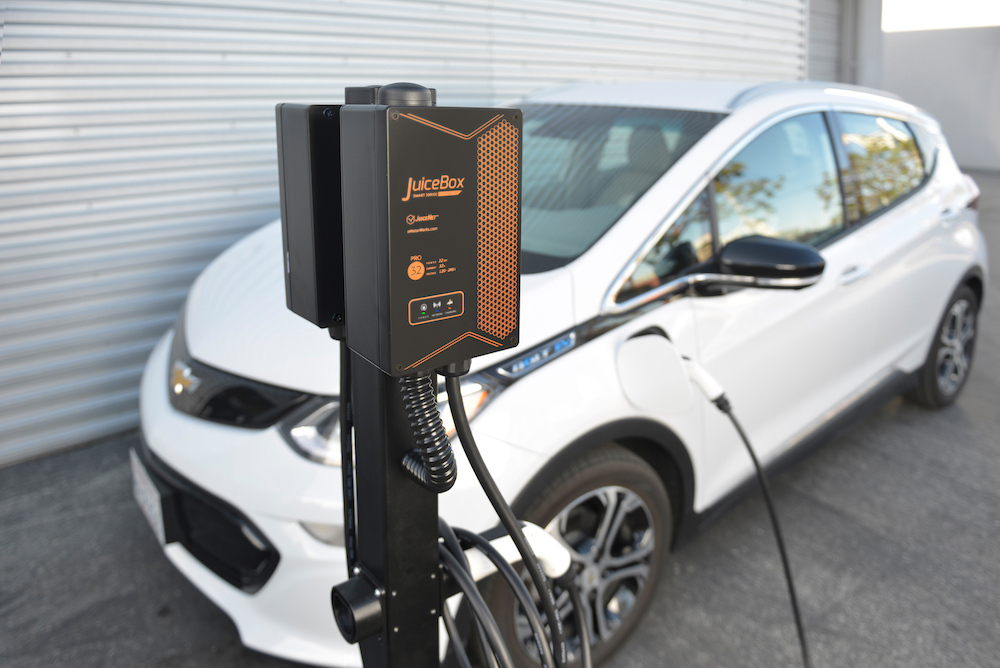
Self-driving cars use a mixture of sensors and machine learning algorithms to perform driving tasks. These include steering, adaptive Cruise Control, and parking. These technologies promise great safety on the roads, despite critics. There are some major limitations to the technology before it is mass-promised.
Autonomous vehicles are still far from ready for the public. Although they aren't yet ready to be used for individual rides, autonomous vehicles have the potential of revolutionizing the auto industry as well as personal mobility. They can be trusted and safely operated by themselves without human drivers. They can also reduce highway deaths. They are capable of monitoring traffic conditions, taking tactical decisions and avoiding collisions.
The need to understand hand signals is one of the biggest hurdles to fully automated vehicle driving. This can be done by a system that combines cameras and radars. These systems interpret the characteristics of objects and calculate their distances. These devices are present in front and rear bumpers. These devices can be found in the front and rear bumpers.

LiDAR or laser radar is another important element of autonomous operations. These devices can measure distances, flight time, and 360-degree vision. These sensors can be embedded in a wide range of vehicles and are poised to see significant growth. This is because there is a growing demand for these types of sensors in light trucks.
According to reports, a prototype smartphone app that incorporates these technologies should be available for field testing within six month. The application is expected to help drivers save an average $125 each year on gas. This is based off the fact that the average driver drives around 20,000 km per year. This application does not require a connection to a vehicle, but analysis of its vibrations and sounds. The application allows you to identify objects such as pedestrians or curbs.
The best thing about the technology is its ability to be installed in virtually any car. Some manufacturers have begun to position themselves for the AI personal car market by installing LiDAR sensor on their cars. Ford is the leading company in this field. Ford made a $1 billion investment into Argo AI. This money will be used for software development to create self-driving cars in the future. The investment is similar to that of Uber, which has invested in Otto, a self-driving truck startup.
While artificial intelligence in vehicle diagnostics isn’t exactly new technology, it is steadily growing in popularity to improve safety and security. MIT has a research programme that studies vehicle diagnostics. The researchers have published several papers on the subject.

Another important aspect of autonomous vehicle technology lies in the software that controls driver's control systems. This includes machine learning, neural networks, and other technologies. The neural network is trained to recognize patterns within data, such as curbs, pedestrians, and traffic lights. These machines can then be used for making better driving choices.
FAQ
What are the basics of car mechanics?
You don't need to know anything about cars to work as an auto mechanic. Only you need to know how things work. Most people begin by changing brake pads and tires, before moving on to more complicated repairs.
It is important to be able to read and understand diagrams as well as written instructions. You will also need to understand how parts should be replaced or repaired.
It is important to understand that vehicle repairs should only be attempted by those who have received the proper training. This is especially important if you work with expensive parts such as transmissions or engines.
In fact, even though you won't need to know much about cars, you will need to thoroughly know the basics of mechanical engineering and physics. This includes understanding the mechanics of how engines and brakes work.
Noting that all situations are possible, it is important to be prepared. If your vehicle has been in an accident, you might need to be able to handle it. Additionally, you will need to have experience with handling accidents and breakdowns.
Finally, you need to be willing and able to quickly learn new skills. Not only will you need to be capable of diagnosing problems, but you also need to be able perform simple maintenance tasks like tightening nuts.
How do I fix my vehicle as a hobby?
Why not make it a hobby if you're interested in cars? You could learn how to repair them, buy parts for them, sell them or just enjoy them. This would be a wonderful hobby if you're looking to find something completely different.
But it is not easy to turn this into your full-time occupation. It takes a lot of dedication and hard work. You'll also need to invest a lot.
You might not have a compelling reason to get involved in the car industry.
Is it worth being a mechanic.
The answer to this question will depend on your goals for life. If you are looking for financial gain, then yes. However, if purpose and meaning are what you seek, then no.
You don't need to be a mechanic if you don't know how. It's not going to make you rich. You won't become famous. It is unlikely that your life will change.
This would require you to spend many years learning how to properly do everything. You would still need to hire someone to fix your car if it breaks down. Most people won't bother to do it. They find something better.
Let's sum it up: If you want to make a lot of money, then do so. The mechanic's profession is not the right place for you if it means that you will live a fulfilled life.
What is the difference in a mechanic and an auto technician?
Although they may be similar, they are not identical. An automotive technician maintains cars, while a mechanic repairs them.
A mechanic must have good manual dexterity and be able to perform simple tasks quickly. They should be able to accurately diagnose problems and repair them efficiently.
An automotive technician needs to be more technically skilled than a mechanic. They need to be able use tools such drills and wrenches, and read blueprints.
They should also be capable of safely performing complex procedures. They must also be familiarized in different types and electrical systems.
They must also be capable of understanding how parts interact.
As a result, a mechanic usually earns less money than an automotive technician. Both careers have many options.
What qualifications do I need to become a mechanic?
You will need to pass several exams in order to become a mechanic. These include:
-
A general knowledge test
-
A practical exam
-
An apprenticeship test
These tests are designed for you to understand the basic concepts and principles of mechanics before your start as a technician.
You'll be eligible for work as a mechanic after you have passed the tests. However, you'll still need to complete an apprenticeship. This will include training in the trade.
To learn all you can about vehicle repair, you will need to take classes and workshops. You'll also have to work alongside experienced mechanics.
If you want to be a successful mechanic, it will take concentration and attention to detail. You will need to pay careful attention to every aspect when repairing vehicles.
To become a successful mechanic you'll need patience. If you don’t enjoy following instructions, this might not be the right career path.
If you enjoy cars and fixing them, this job could be a good fit for you.
Statistics
- According to the BLS, total auto technician employment is expected to exceed 705,000 by 2030. (uti.edu)
- Apprentice mechanics earn significantly less hourly than mechanics who have completed training, with a median wage of approximately $14.50 an hour, according to PayScale. (jobhero.com)
- 52% of Mechanics in the United States think their salaries are enough for the cost of living in their area. (indeed.com)
External Links
How To
How to Become an Auto Technician
An automotive technician performs repairs and maintains vehicles. He/she works in car dealerships as well as auto shops, garages, and service centers. Customers can rely on him/her to fix their cars, trucks and motorcycles. An automotive technician must know how to diagnose problems and perform repairs efficiently, safely, accurately, quickly, and correctly.
An associate degree should be obtained from a vocational school if you wish to work as an auto technician. After completing the program, he/she must take the National Institute for Automotive Service Excellence certification exam. ASE stands in for American Society of Mechanical Engineers. The ASE certification test consists two sections. The first section tests the ability to use mechanical knowledge. The second section tests the ability to apply practical skills. You will need to attend an authorized testing site in order to pass the test. These locations can be found online, or by contacting your local car dealer.
After passing the exam, a candidate must take a state exam before being licensed as an automobile technician. This process is different depending on where you live. Some states require that applicants attend a training class, while others allow them freedom to study at their own pace. Some states allow technicians to become licensed right away after receiving their license. While others wait until they have had at least six years of experience as an automotive technician.
Apply to your local dealership to become an automotive technician. Most new employees work as apprentices after they have been hired. Apprenticeships last for three years. During this time, a student learns how to perform basic repairs, such as changing oil, adjusting brakes, replacing tires, cleaning spark plugs, inspecting engine compartments, and performing routine maintenance. Advanced repairs can be done by some students, including replacing shocks, installing air filters and repairing engines. Schools offer classes during business hours. However, some schools offer evening classes if needed.
Once a student is done with his/her apprenticeship he/she can become a master journeyman. Journeymen can spend up to five years learning how major systems work, including transmissions, differentials. They also learn how to adjust steering gear and suspensions. You will also learn how to repair complicated electrical components, as well as how to remanufacture engines and rebuild transmissions. Many employers prefer hiring journeymen because they know the job well and understand what the customer expects.
Once a candidate passes the required exams and is granted a license, they might consider opening their own shop. According to Bureau of Labor Statistics (2010), almost 1.7million automotive mechanic jobs were on the market. This figure is expected to rise 18 percent between 2009-2020. The candidate should expect to invest thousands of money in equipment and supplies if he/she decides to start his/her shop.
Many factors affect the automotive technician's salary, including location, education, experience, and employer type. A jobless person can expect to make $20,000 per year. A person with only a high-school diploma could make around $21,000 annually. Those with an associate's degree earned approximately $24,000 per year. Technicians with a bachelor's degree earn about $27,000 per annum. Masters' degree holders earn around $32,000 per annum. Salary increases are common so professionals who make less than $30,000 a year could realistically expect to earn $40,000 over the next few years.